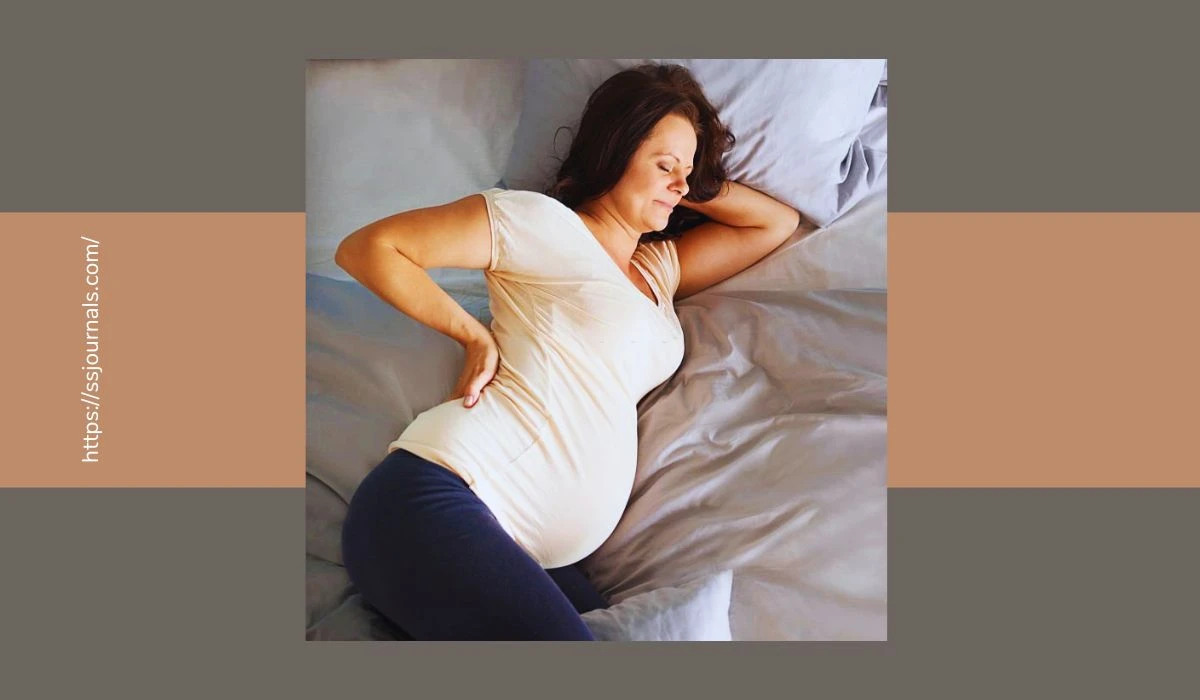Getting adequate and comfortable sleep during pregnancy is vital but can be challenging with a growing belly. The best sleeping positions change through the trimesters as the body goes through physical changes.
Finding an optimal position enhances restful sleep and provides health benefits for both mother and developing baby. This article will discuss the pros and cons of various sleeping positions at different stages of pregnancy along with tips for maximizing comfort.
Different Stages Of Pregnancy And Tips For Maximizing Comfort

💠 First Trimester
In the first 3 months, sleeping on the stomach or back is considered safe for most women as the belly is not very distended yet. However, by the second half of the first trimester as the uterus expands, back sleeping may cause the weight of the uterus to partially compress major blood vessels. This can reduce circulation and blood and oxygen flow to the fetus.
Sleeping on the stomach places even more pressure on the abdomen and pelvis. It can be uncomfortable with breast tenderness early in pregnancy. For optimal circulation and comfort, shifting to side sleeping by week 12 is recommended.
💠 Second Trimester
In the second trimester between weeks 13 to 28, the growing uterus makes the back and stomach sleeping very uncomfortable. Sleeping on the side becomes essential to take the pressure off the back and abdomen. Side sleeping improves blood flow by keeping the uterus and baby weight off the major blood vessels.
The left side is often considered the optimal position in this stage. Lying on the left helps circulation to the fetus by preventing the weight of the pregnant uterus from compressing the inferior vena cava vein that returns blood to the heart. It also enhances blood flow through the uterus by avoiding pressure on the liver.
💠 Third Trimester
In the final trimester from week 29 onwards until delivery, side sleeping remains the ideal position for the health of mother and baby. However, either side can be slept on provided it feels comfortable. When resting on the left side becomes uncomfortable, changing to the right side helps shift the weight of the uterus and relieve aches.
Placing pillows under the belly and between the knees helps maintain neutral alignment of the neck, back, and hips for added comfort. An upper leg and hip pillow prevent the top leg from sliding forward and straining joints.
Tips For Optimal Sleep Comfort
✔️ Use soft pillows to cushion the head, belly, knees, and ankles
✔️ Try using a pregnancy body pillow for full support
✔️ Keep room temperature comfortably cool
✔️ Sleep with adequate ventilation and fresh air
✔️ Avoid drinking too many fluids before bedtime
✔️ Do light stretches or prenatal yoga to relieve aches
✔️ Practice good sleep hygiene with a relaxing pre-bed routine
✔️ Nap during the day if extremely tired but avoid long daytime sleep
✔️ Use baths, massage, and heating pads for relaxation
✔️ Communicate with your provider about severe discomfort or insomnia
Benefits Of Side Sleeping In Pregnancy
Sleeping on the side, especially the left side, provides multiple benefits during pregnancy:
- Enhances blood flow and oxygen circulation to the fetus
- Minimizes risk of blood pressure dropping in mother
- Reduces backache and muscle strain
- Alleviates pain from hemorrhoids and varicose veins
- Minimizes heartburn and reflux symptoms
- Improves kidney function and reduces swelling
- Allows uterus room to grow without abdominal pressure
- Facilitates optimal nutrient and waste exchange via the placenta
When To Avoid Side Sleeping?
Though rare, side sleeping is best avoided in certain conditions like:
🔶 Being diagnosed with placenta previa that covers the cervix
🔶 Presence of vaginal bleeding or threatened miscarriage
🔶 Having uterine fibroids that displace the fetus
🔶 Carrying multiples that make lying on one side difficult
Alternative Sleeping Options
For those unable to side sleep, some alternatives include:
- Propping up on multiple pillows in a semi-reclined position
- Using an adjustable bed with elevated head and foot sections
- Placing a soft wedge under the back while lying on the back
- Lying fully on the back for short periods, alternating left and right sides
- Sleeping in a well-reclined armchair with plenty of pillows
When side sleeping is too uncomfortable even with aids, speak to your provider about additional options to help get proper rest.
Conclusion
Sleeping on the side is the optimal position during pregnancy for maintaining comfort and blood flow to the uterus and baby. While the left side is often recommended, switching between sides helps redistribute weight and pressure.
Supportive pillow placement eases aches and strains. Adapting appropriate sleep hygiene practices and communicating with your provider can help overcome insomnia or restlessness. With some adjustments, expectant mothers can discover the best sleeping positions for their changing bodies throughout pregnancy.

